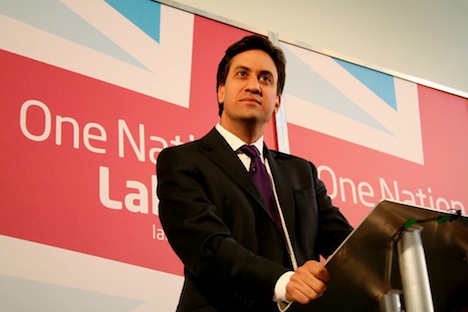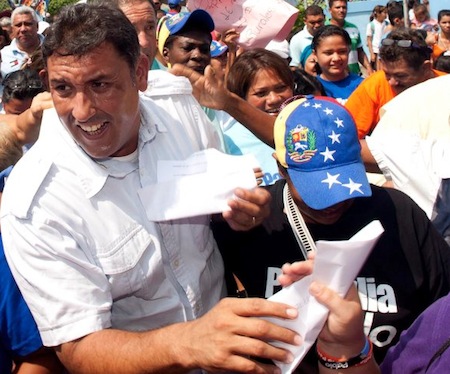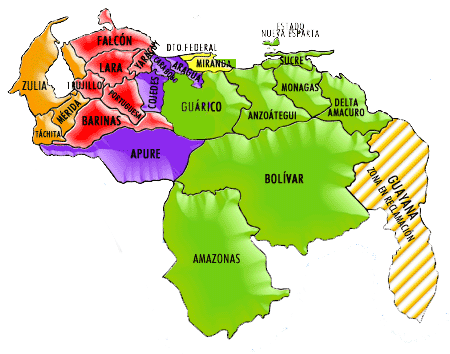The troubling case of David Miranda, the partner of Guardian reporter Glenn Greenwald, who was detained by British police at Heathrow yesterday for nine hours under schedule 7 of the U.K. Terrorism Act, is now a full-blown fully international incident. ![]()
The case has implications not only for U.S. politics (Greenwald has been the chief source for the leaks about the U.S. National Security Agency’s Internet intelligence-gathering programs) and even Brazilian politics (Greenwald lives in Brazil with Miranda, a Brazilian native), but for British politics as well, where the issue of civil liberties has been contentious for the past decade and a half under both the Labour governments of Tony Blair and Gordon Brown and the Conservative-led government of current prime minister David Cameron.
Political strategist Ian Bremmer is already suggesting that the United States and/or the United Kingdom may be preparing an indictment against Greenwald (presumably under the U.S. Espionage Act), which would explain why Miranda’s laptop computer and other personal effects were confiscated in London. We already know that the United States, by the admission of White House deputy press secretary Josh Earnest was given a heads-up by London prior to Miranda’s detention, though Earnest has denied that the United States requested or collaborated with the detention. It’s equally plausible that overeager police officials in London jumped at an opportunity to gather information they thought top U.S. and U.K. officials would appreciate — if the United States and the United Kingdom really are pursuing an international case against Greenwald, you’d think they would be careful not to commit what seems like a prima facie violation of the U.K. Terrorism Act.
With both Scotland Yard and Cameron saying little about the incident, and with U.S. officials remaining relatively mum, most of today’s discussion has been dominated by vehement critics of the detention on both sides of the Atlantic.
One of the most striking has come from Labour Party’s shadow home secretary, Yvette Cooper, a rising Labour star who may herself one day lead the party, who has called for an investigation into whether the detention was appropriate under the Terrorism Act:
Schedule 7, which applies only at airports, ports and border areas, controversially allows officers to stop, search, question and detain individuals. Miranda was held for nine hours, the maximum the law allows before officers must release or formally arrest the individual.
According to official figures, most examinations under schedule 7 – over 97% – last less than an hour, and only one in 2,000 people detained are kept for more than six hours. It has been widely criticised for giving police broad powers under the guise of anti-terror legislation to stop and search individuals without prior authorisation or reasonable suspicion – setting it apart from other police powers.
As we approach the annual convention period in British politics, pressure on Labour leader Ed Miliband is growing to draw a deeper contrast with the current coalition government on many issues, including civil liberties. Soon after his election as Labour leader in September 2010, Miliband criticized his party’s overreach on civil liberties, identifying in particular the Blair government’s plan to hold suspects for 90 days without trial and the broad use of anti-terrorism laws. At the time, Miliband argued that he wanted to lead Labour to reclaim the British tradition of liberty, though Miliband also indicated at the time he supported Blair’s widespread introduction of what are now over 4 million closed-circuit television surveillance cameras throughout the country.
As the parties begin to jostle for position for an election that’s now just 21 months away, Cameron certainly won’t be able to run for reelection on as vigorous a pro-liberty position as he did in 2010, though his junior coalition partners, the Liberal Democrats, can point to their success in repealing Labour’s plan to introduce national ID cards and scrapping the Tories’ proposed communications data bill this year.
That leaves a key opening for Miliband to champion civil liberties, but given the durability of the British surveillance state and Labour’s role in creating the legal framework last decade for the British surveillance state, it is unclear whether Miliband will do so, though Cooper delivered a high-profile speech in July arguing for more oversight and protections in relation to the U.K. intelligence and security services. It’s likelier, however, that a future Labour government will pursue many of the same pro-security policies that each of the Blair, Brown and Cameron governments have pursued.
British voters will certainly remember the truly dismal record of the past Labour government under Blair and Brown on liberty (whether the efforts made the United Kingdom more secure is another question) — the list of curbs on personal freedom is long, and it includes not only the push for CCTV cameras: Continue reading Would a Miliband-led Labour government be an improvement on British civil liberties?



